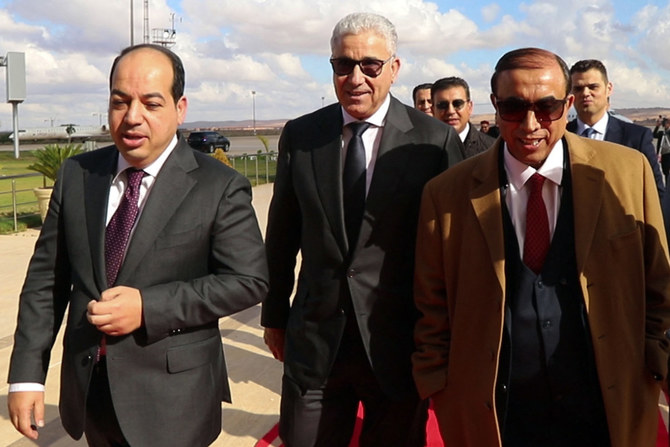The UN on Thursday reminded the Libyan authorities that presidential and parliamentary elections, conducted “in the appropriate conditions, on a level playing field among all candidates” are indispensable for a peaceful solution to Libya’s political crises.
“The current challenges in the electoral process should in no way be instrumentalized to undermine the stability and progress which has been achieved in Libya over the past 15 months,” said Stephanie Williams, the UN’s special adviser for Libya.
Calling on leaders to honor the will of millions of Libyans who had registered to vote, Williams also urged politicians to remain focused on the electoral process and strive to create the necessary conditions for the elections to be secure, fair and free.
The long-awaited Libyan presidential election, initially slated for Dec. 24, was pushed back by a month on Wednesday, following the recommendation of the High National Election Commission amid disputes over the laws governing elections, the eligibility of several divisive candidates, and occasional infighting among various armed groups.
The electoral process had also been dogged by east-west rivalry, and the presence of thousands of foreign fighters and mercenaries, with several reports of harassment by militias of electoral workers, judges and security staff.
A Libyan parliamentary committee said that it has become “impossible” to hold the elections on Friday.
Amnesty International’s Diana Eltahawy cited intimidation by armed groups and militias which “not only enjoy rampant impunity but are integrated into state institutions without any vetting to remove those responsible for crimes under international law.”
Williams said the UN “welcomes (the HNEC’s) commitment to the ongoing electoral process and to continuing the review of the applications of the candidates for parliamentary elections.”
The special adviser, who arrived in Tripoli earlier this month and met with “hundreds of people from all of Libya’s regions,” said she was pleased to witness “a shift from a discourse of conflict to one of peaceful dialogue.
“Even those who only last year bore arms against each other have continued to come together,” she said. “Despite the many hardships endured by many Libyans, including in southern Libya, and the pleas of those still displaced by the conflict that has torn the country apart during the past 10 years, I have met many Libyans who have recovered a sense of normalcy.
“I have heard stories of separated families that could finally travel to visit relatives, a development made possible by the ceasefire and resumption of flights and the reopening of roads.”
Williams had overseen UN mediation efforts which led to an October 2020 ceasefire and the formation of a transitional government, as well as the elections scheduled for Dec. 24.
“I have also heard time and again the overwhelming desire of Libyans to go to the ballot box to determine their future and to end the long transitional period through the holding of inclusive, free, fair, and credible elections,” she said, adding: “I have also heard their genuine hopes that elections must be part of the solution, and not part of the problem, in Libya.”

